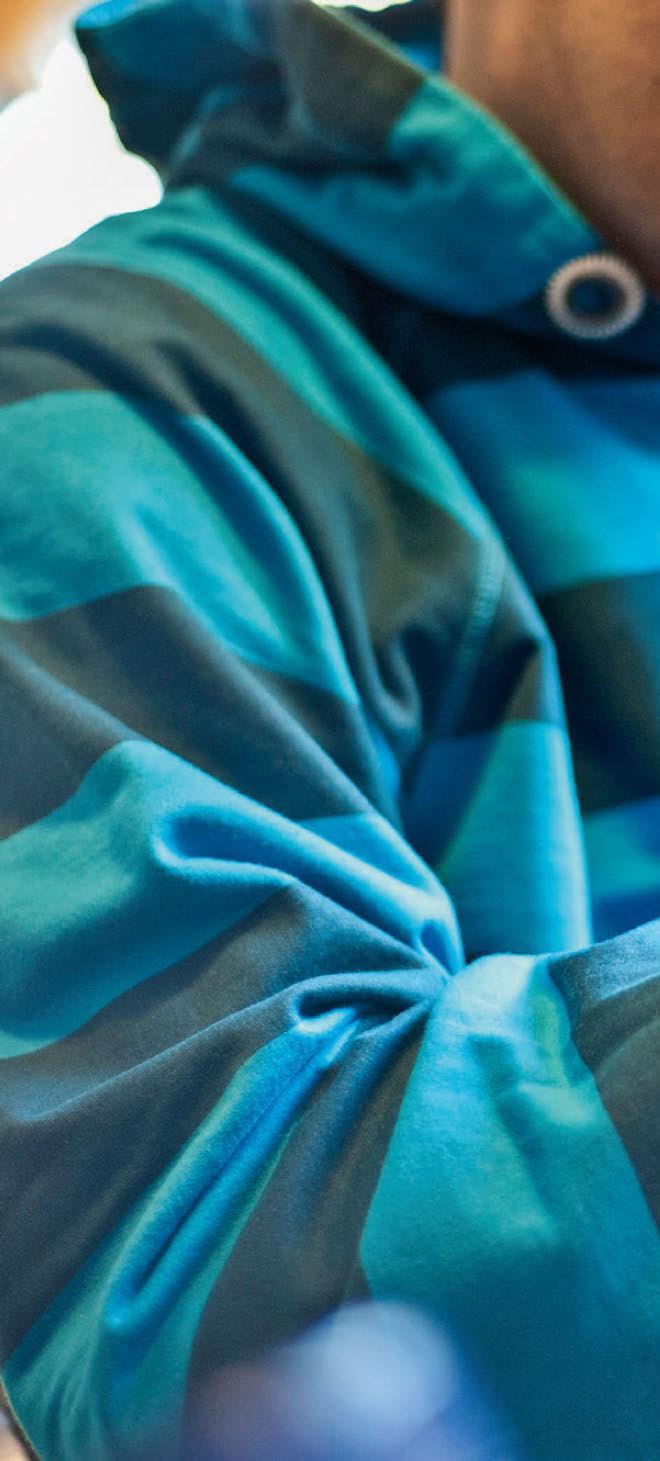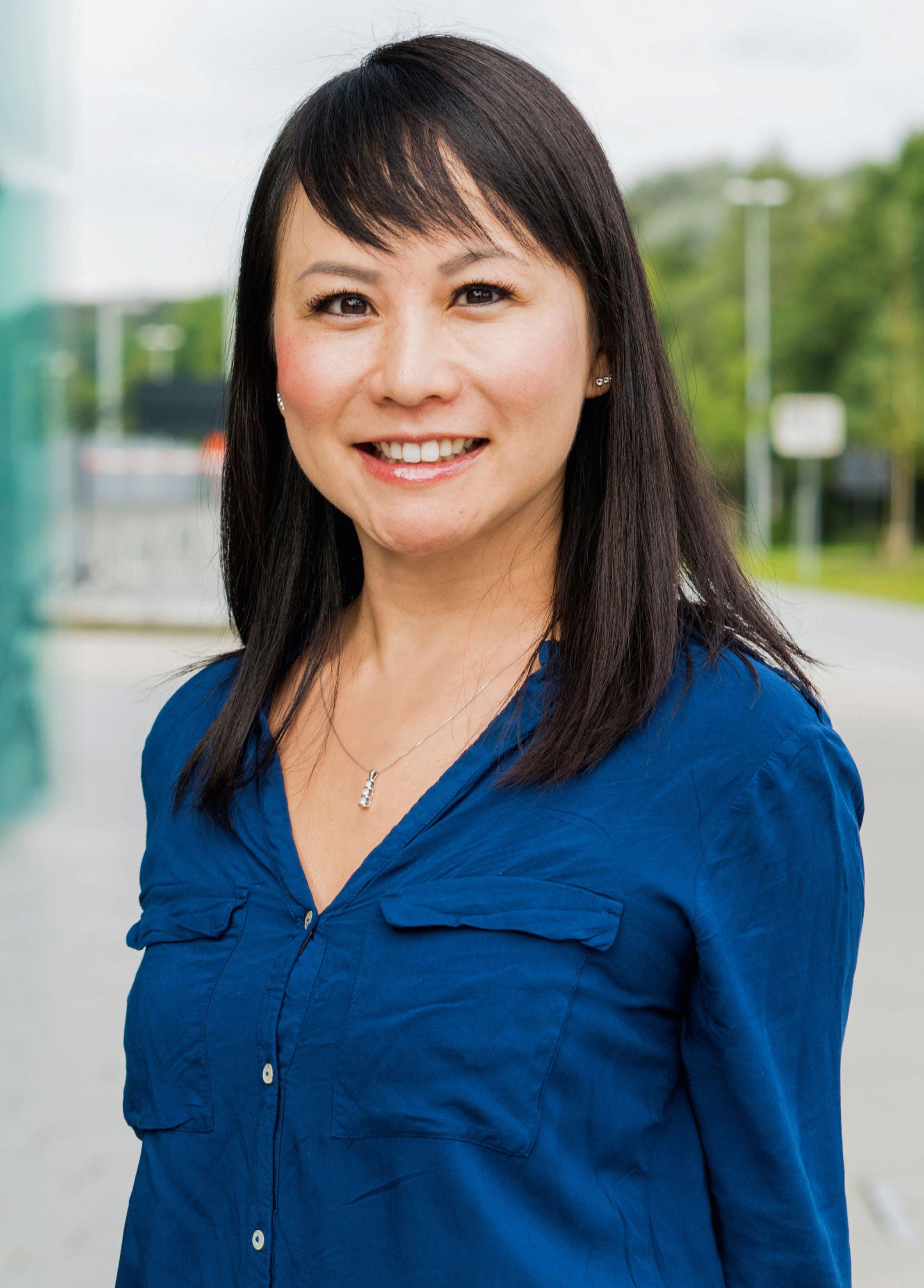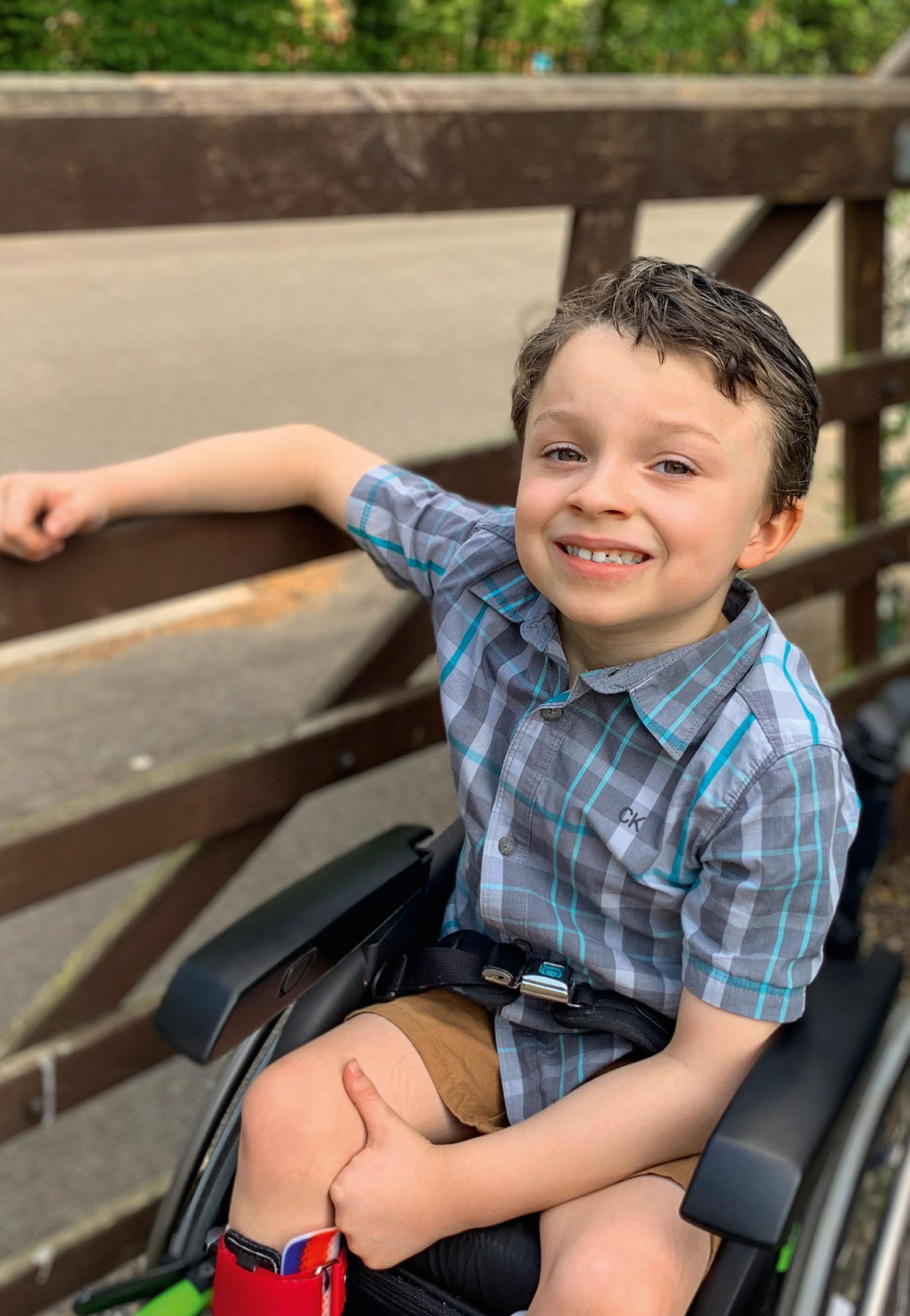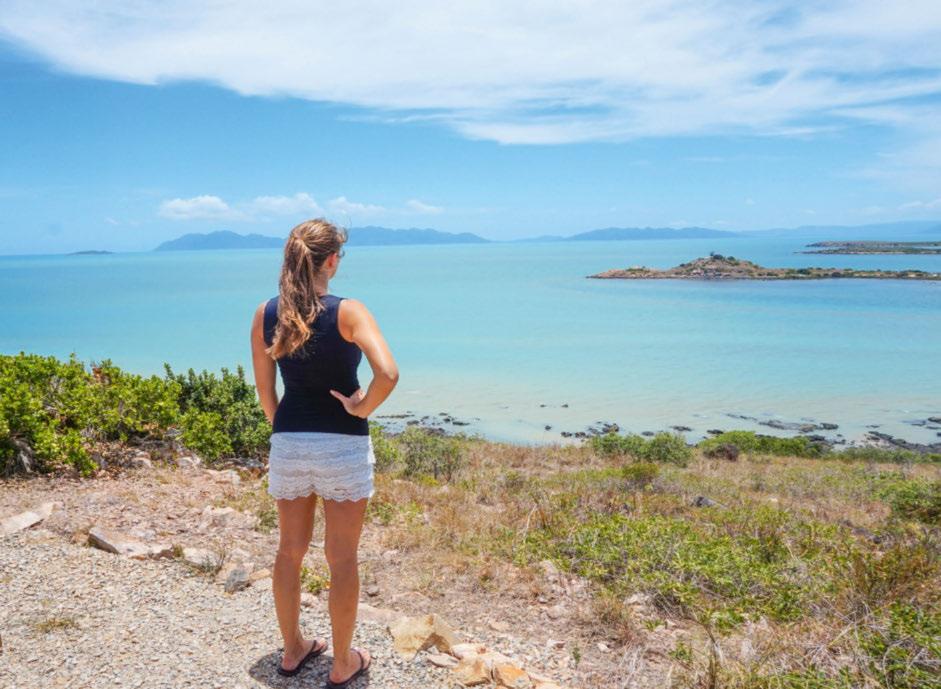
6 minute read
An Abrupt End to a World Tour

Many harbour the dream to explore the world with nothing more than a backpack. Vanessa and her boyfriend were living that dream. At least until the day the young woman suffered a tragic fall in New Zealand…
Advertisement
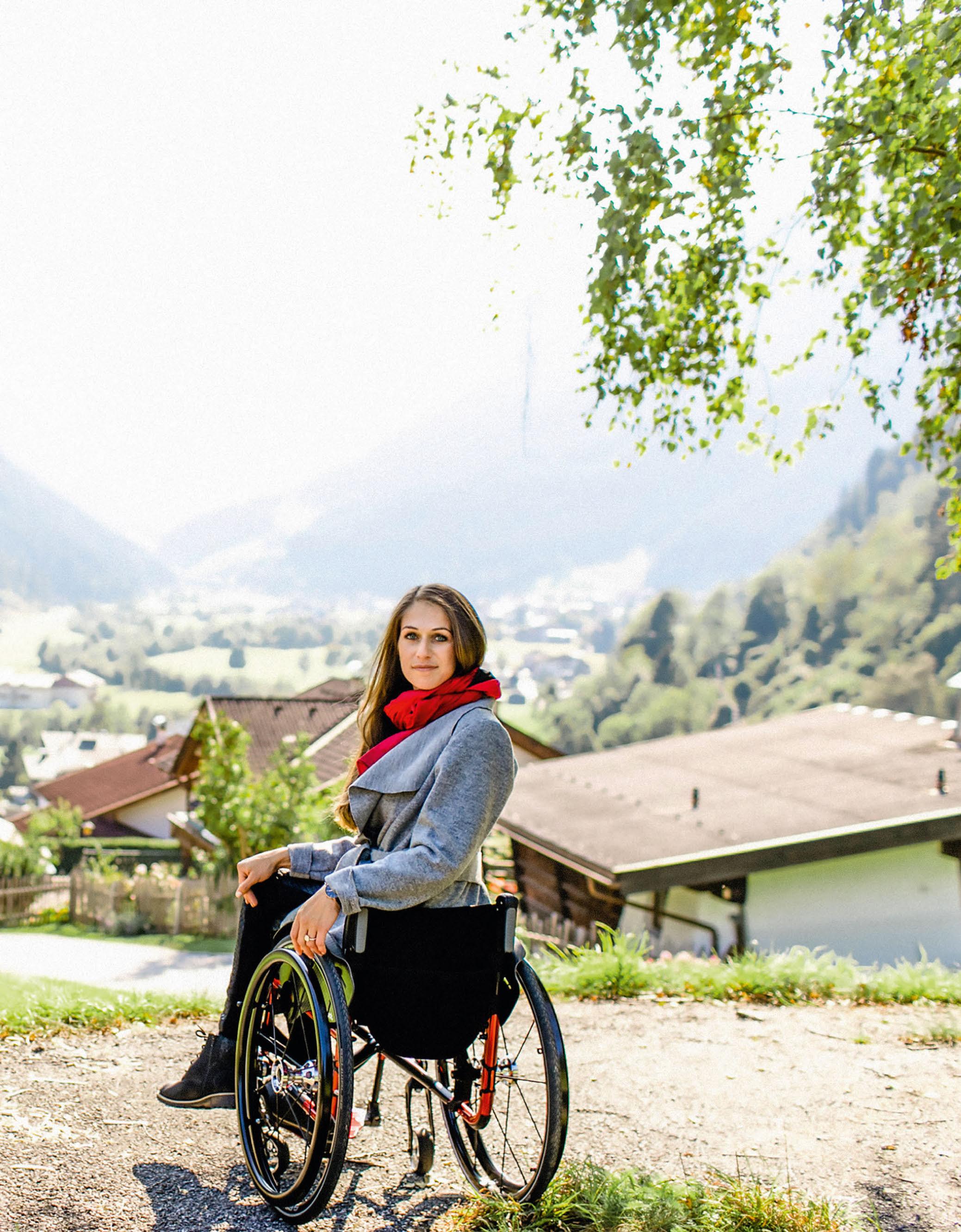
Packed backpacks, two around-the-world tickets, and the feeling that the world is at your fingertips… Vanessa knows how it feels to have just that. Following the completion of her studies in biomedical analytics and two years in a cancer research laboratory, she was eager to embrace life to the fullest one more time. She and her boyfriend planned an almost fourmonth trip around the globe. In October 2016, she boarded a plane to Thailand – full of anticipation and with a thirst for adventure. She had even penned a bucket list of things she wanted to see and experience.
“I have always been very athletic and was eager to give everything a try. That is exactly what I did, too.” Vanessa attended full moon parties on the beach, observed penguins in their natural environment, and hiked along the ridges of the most impressive
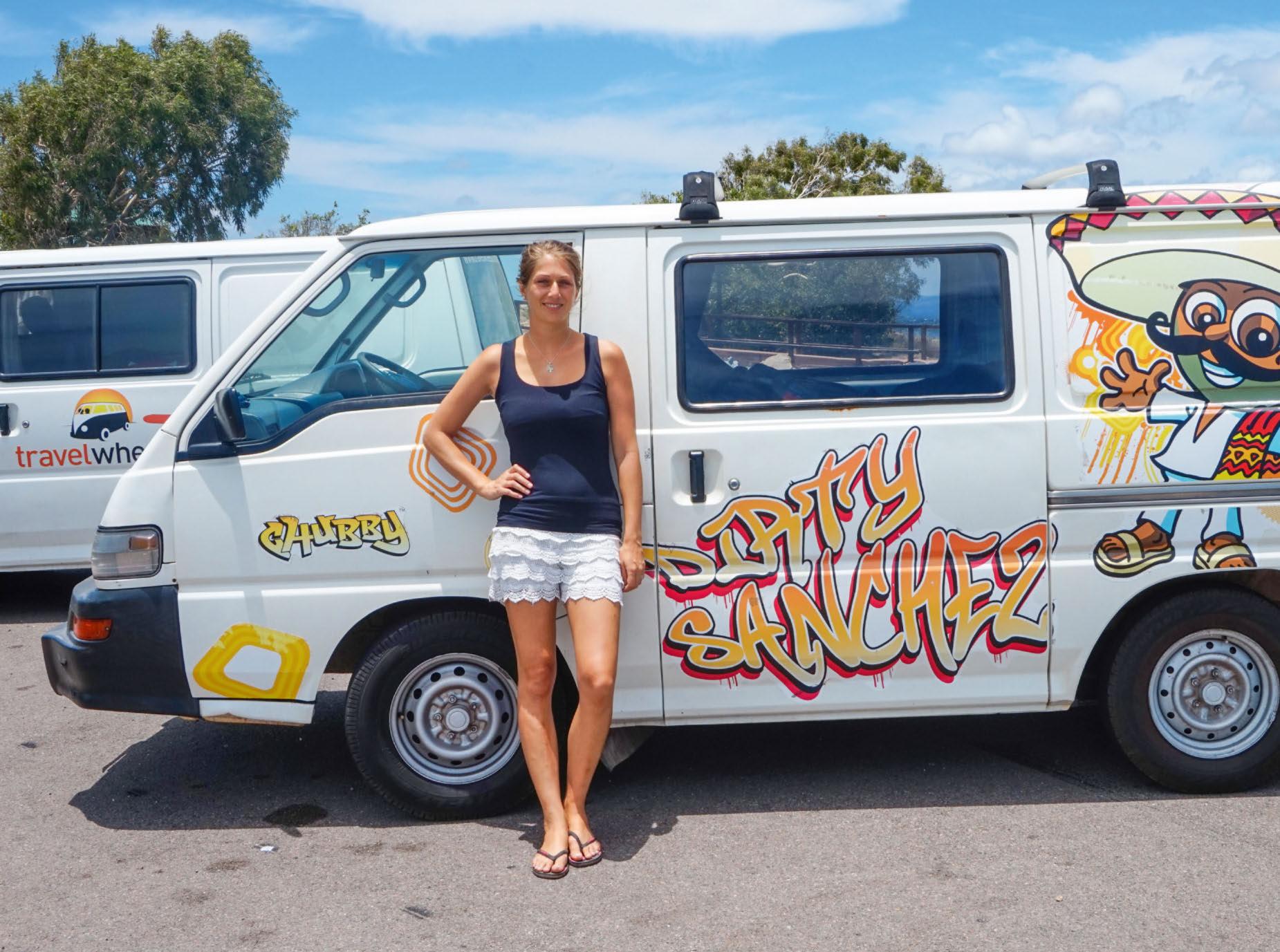
coastlines. “This trip was one of the most wonderful experiences I have ever had. I ticked off so many items on my list and felt like the happiest person,” she recalls with a smile. She visited Kuala Lumpur, Singapore, and Australia before finally reaching New Zealand.
THE ACCIDENT While the first snow was falling back home in Austria and her family was getting ready for Christmas, the then 24-year-old was
1

2

1. The start of an exciting adventure: exploring Australia in a camper van. 2. At the famous Full Moon Party in Thailand. 3. Vanessa in front of the Sydney Opera House. 4. Memories of wonderful times: Vanessa shows her sister photos of the trip.
4 3 enjoying the sunshine in a small village near Christchurch. “There was a huge trampoline park nearby, and we decided to check it out.” Vanessa and her boyfriend jumped and laughed together. “It did not take long before we started attempting forward somersaults and backflips. Everything was fine until I hit the ground at a very unfortunately angle.”
Vanessa stayed down. She was in awful pain. “My back hurt terribly and I could not move. One of the first things that popped into my mind was a wheelchair.”
Her boyfriend, the trampoline park staff, and other visitors rushed over and someone called the emergency services. Vanessa was hauled into a helicopter and flown to a nearby hospital where she underwent emergency surgery. Her fractured vertebrae were secured with titanium rods. When she finally came to, she immediately realised that she could no longer move her legs.
“A doctor explained to me, in English, that my spinal cord was injured by the impact and that I was completely paralysed from the 12th thoracic vertebra down. I was told I would never walk again.” It was an utterly surreal situation for Vanessa. “Perhaps because it was all explained to me in a foreign language… but to me it all felt so unreal. It seemed like the situation was being explained to someone else…”

THE TOUGHEST YEAR Vanessa was transferred to a rehab facility the very next day. Her boyfriend moved into a residential unit for relatives, meaning he was able to visit every day. “I was still in a great deal of pain, but the care I received was phenomenal. I was also very grateful that my injury did not occur at a higher level, ensuring that I could, at least, still move my hands and arms.” Vanessa seems composed when she recounts the circumstances she found herself in. She recalls the first time she sat in a wheelchair, the first attempts at navigating it, and the first shower in a seated position. “I was always busy, permanently distracted.”
AND WHEN THINGS QUIETENED DOWN? Vanessa’s light blue eyes fill with warm tears. “Those moments were incredibly tough,” she admits openly. “Naturally, I had imagined this trip – my whole life – quite differently. I felt very sad.” After spending a month at the rehab facility, Vanessa was fit enough to be flown home. “It was actually a blessing to be away from home, to come to terms with my situation on a personal level before having to face my family.”
Her parents, her sister, and her two brothers found out about what had happened over the phone. All the more welcome was the happy reunion when Vanessa finally arrived back in Austria. Vanessa has a particularly close relationship with her sister Corina. “She was and is always there for me. That means a great deal to me.” Vanessa tried out many different wheelchair sports during her time at the rehab facility. “I did not miss a beat in that respect,” she smiles. Archery, basketball, and even horseback riding… “In the end, I decided to learn how to play tennis to have another sport to share with my dad.”
While Vanessa immersed herself in her passion and was happy to find something she
Vanessa regularly spends time on the tennis court and enjoys hanging out with her sister Corina.
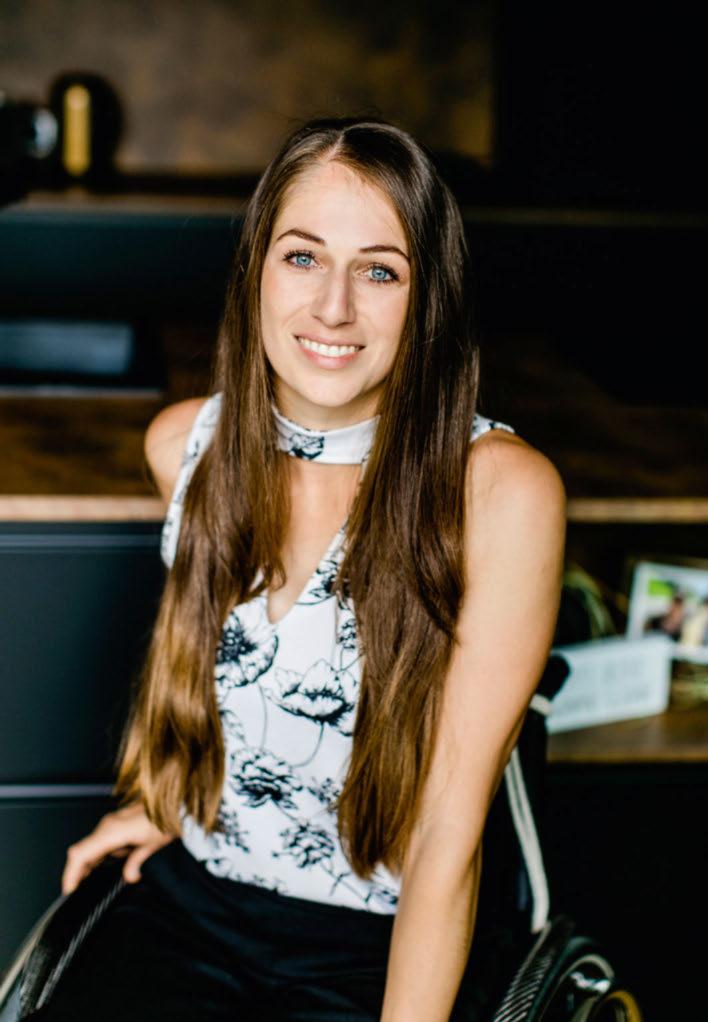


could be passionate about again, her parents moved out of their barrier-free apartment to make their daughter’s life easier. “It helped to return to a quasi-new environment rather than diving back into my old life.”
Nevertheless, she believes that, in retrospect, the first year was the toughest for her. “Experiencing everything anew, the great sadness one feels – it simply takes time…” The relationship with her boyfriend crumbled under the pressure of her new circumstances. “It was important for me to look to the future. He found that very difficult. Ultimately, I no longer wanted to burden him with the situation,” she says more quietly.
INDEPENDENCE AND HOPE Vanessa started regaining some of her independence over time. She was soon able to go shopping alone and learned how to operate a specially adapted car with her hands. The next milestone was a move into a house she shares with her sister. “We now live next door to each other, meaning she is around whenever I need help,” Vanessa smiles. Her life, she says, is now more structured, much less spontaneous than before her tragic accident. “Sometimes I think about sandy beaches and how difficult it is to enjoy them in a wheelchair. I miss the sensation of warm sand under my feet…”
She is, however, determined not to look back and ponder what might have been. “I used to work in research myself, which means I am fully aware that progress requires time. Naturally, I would be thrilled if there was a cure or remedy for me and all the others who are affected,” she says. “But until that happens, I intend to be happy.”

